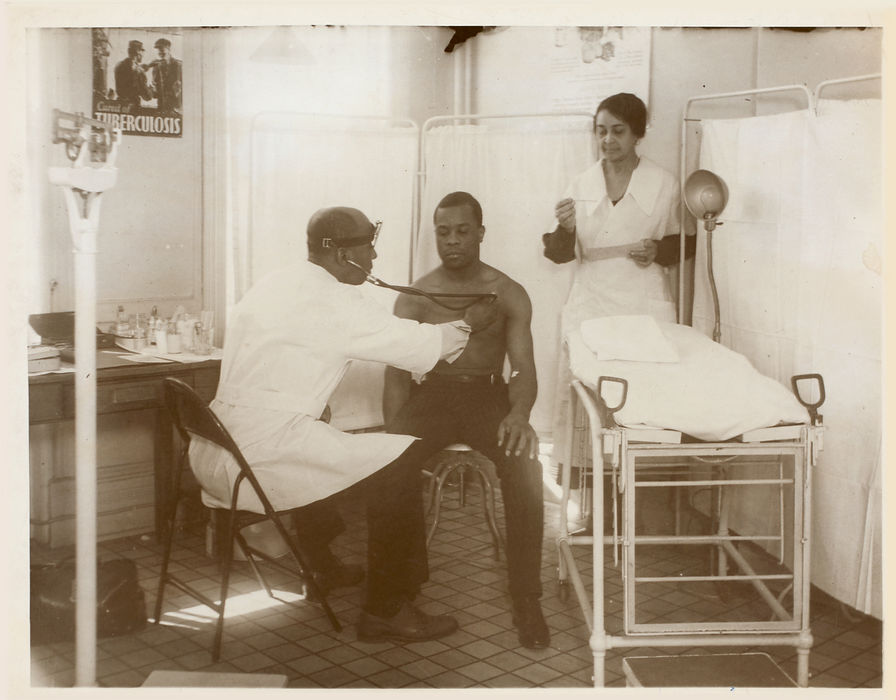Helping New Yorkers in need for over 100 years


1919-1929
• New York Urban League was founded by a group of interracial New Yorkers and provided employment and connections for blacks migrating from the agricultural and rural South and Caribbean islands to the industrial urban centers of the North.
• Among the first achievements, NYUL formed boys’ and girls’ clubs and fresh air camps and organized employment services and social welfare conferences.
• In 1926, NYUL concentrated its efforts on creating new opportunities for Blacks in skilled trades and through educational
programs.

1929 -1939
• New York Urban League provided emergency support for the unemployed during the Great Depression, which disproportionately affected Black people, including providing subway fare, food, clothing, and housing.
• League President, on advocacy: “One of the most delicate pieces of work the Urban League has to do is to sell to the various social work organizations of the city the idea that the Negro should be consulted and should assist in the direction of any program that affects his welfare."

1939-1949
• New York Urban League sponsored the Committee for Interracial Voluntary Hospitals that lead to opportunities for Blacks to receive care and work in local
hospitals.
• Obtained the contract to handle applications for the Dunbar Housing Project, the first new housing project in Harlem built primarily for Blacks.
• In 1945, NYUL’s housing demonstration program became a training center for developing Black managers who could handle large-scale housing projects and banking operations in Harlem, and provided new opportunities for Black real estate brokers.
• NYUL expanded to serve Brooklyn, Queens and the Bronx.

1949-1959
• New York Urban League negotiated with brewing, airline, and baking industries to open their ranks to African American workers.

1959-1969
• In 1966, the first Frederick Douglass Dinner was held to support the work of the New York Urban League. The event was organized by NYUL Secretary Ann
Kheel (Mrs. Theodore Kheel) who served as Executive Chairman for the dinner.
• In 1969, NYUL Executive Director Livingston Wingate co-founded the African American Day Parade, which continues in Harlem to this day.
• First Whitney M. Young Football Classic was held to support educational initiatives of the New York Urban League. NYUL has provided thousands of scholarships since its inception.

1969-1979
• The New York Urban League established the Youth Enrichment Services Program that provided a range of support to court involved youth, and built 536 units of housing on Staten Island.
• The first of the “State of Black New York” publications were released and continued on an annual basis.

1979-1989
• New York Urban League established the annual Historically Black Colleges and Universities (HBCU) College Fair that provides thousands of students and parents with information on the college application process, and a computerized job bank that gives the community access to employment.
• In 1985, NYUL convened a 2 day black leadership retreat of politicians, prominent clergy and civic leaders to discuss the scourge facing the Black community. Founded by NYUL director of Youth and Social Welfare, Debra Fraser-Howze, the National Black Leadership Commission on AIDS became the national leading voice on AIDS issues.

1989-1999
• May 12, 1993, Mayor Dinkins filled one of his two vacant seats on the board, appointing Dennis M. Walcott, president of the New York Urban League, to the NYC Board of Education.
• Rite of Passage Program for Boys and adopted a city block in response to violence in the
community.

1999-2009
• New York Urban League refocuses mission on original underpinnings of employment and education; Established Champions of Diversity Breakfast to honor corporations with exemplary diversity practices.
• In 2003, League President Darwin Davis led the creation of the Young Professionals, a network of young professionals across NYC dedicated to professional and leadership development.

2009-2019
• New York Urban League published “A Parent’s Guide to College.” This guide was made possible through the support of the Daily News, US News & World Report, the New York City Department of Education, and the City University of New York. The guide was designed for parents of students who are the first generation in their family to attend college.
• NYUL established a focus on STEM, developing partnerships with Microsoft, Google, and Infor and created the “Parent’s Guide to STEM” in partnership with CUNY and distributed it to over 100,000 NYC families.

2019-present
• Initiated the COVID-19 Emergency Fund, providing grants to students and families in our employment and youth services programs.
• The Diversity & Inclusion Lab will be an incubator for recruitment, best practices, and other diversity and inclusion initiatives. It will provide an environment for New York City’s most creative minds, forward thinking companies, premiere colleges and universities and top African American talent to interact. The goal is to make the NYC workplace one of the most inclusive in the world.
Thank You
For Your Support of the New York Urban League as we celebrate our Centennial.
For 100 years we have been dedicated to advancing economic growth and empowerment, equality, and social justice for New York’s most vulnerable African Americans. When the League was founded in 1919 by interracial New Yorkers, their goal was to provide employment and connections for African Americans who had very few resources. Under the leadership of James H. Hubert, the first Executive Director, and Miss Elizabeth Walton, the first Board President, the foundation was set for the challenges and growth that our organization would experience as our impact and outreach evolved over the decades.




.png)